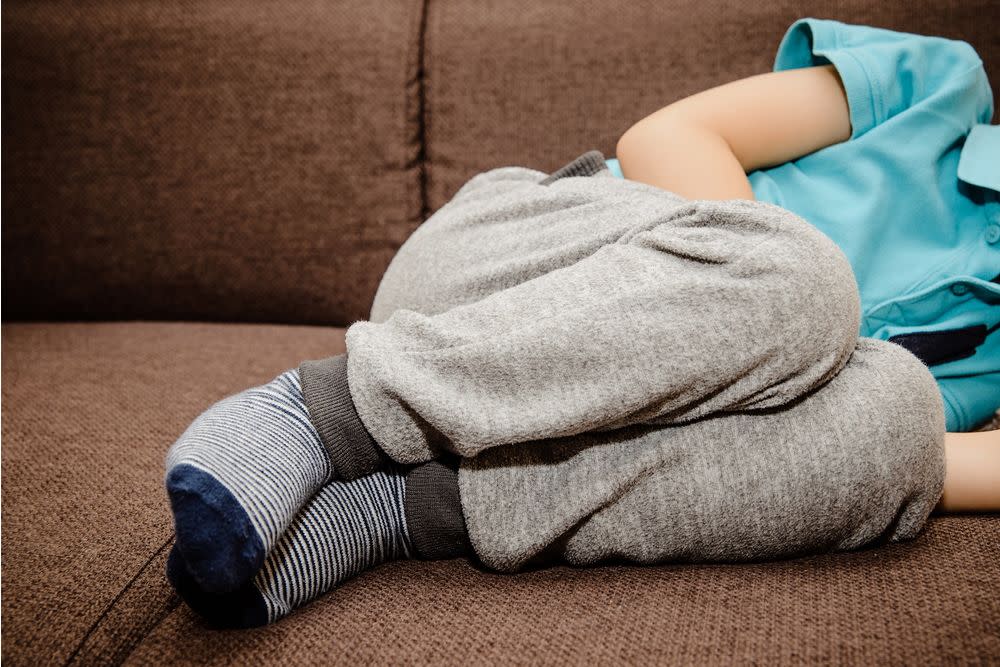IBS in Children: Symptoms and Remedies for Parents to Know

All kids complain of belly pain now and then. But if your child regularly has tummy troubles, keep in mind that irritable bowel syndrome isn't just an issue for adults. Kids can have IBS too—and they can also get relief.
The red flags of IBS include abdominal pain or discomfort once a week for at least two months (without another medical issue or injury that's causing it), belly pain that gets better after a bowel movement, diarrhea, constipation, or bloating. It can be difficult to pinpoint symptoms with kids, especially very young kids, because they don't always have the language to describe them well, says Angela Lemond, RDN, a specialist in pediatric nutrition. Pointed questions like "Does your belly hurt after meals?" can help, she says.
It's not known how many children have IBS, but it seems to affects boys and girls equally, according to the National Institute of Diabetes and Digestive and Kidney Disorders (NIDDK). And as with adults, the reasons for IBS aren't fully known. An infection or irritation of the intestines, bacterial overgrowth, problems with brain-gut signaling, and genetics are all possible causes.
A physical exam and medical history are usually enough to diagnosis it, though blood and stool tests, ultrasound, and colonoscopy may be needed if there are concerns about bigger issues like inflammatory bowel disease.
So how can kids feel better? Lemond says the majority of kids she sees with IBS are helped by simple interventions like getting more fluids to relieve constipation. A low-fiber diet is another common trigger of symptoms—though too much fiber can be a culprit too. "We see very health-minded families who are giving a lot of high-fiber foods, but the child isn't drinking or moving enough to flush the system," she says.
If your child had an illness that required a long course of antibiotics, that may have changed the gut's bacterial balance enough to cause problems too, says Lemond, who typically uses probiotics and diet changes to help restore a better balance. Anxiety can also cause symptoms like diarrhea, feeling full, and abdominal pain in kids. If that's the case, your child may be referred to a play therapist or counselor for help managing it.
RELATED: 4 Ways to Grow a Healthy Gut
Some people with IBS find relief with a low FODMAP diet, which eliminates certain groups of carbohydrates. Lemond says they save that kind of diet intervention for when symptoms won't resolve with other changes, since food restrictions can be hard on kids.
Sally Kuzemchak, MS, RD, is a registered dietitian, educator, and mom of two who blogs at Real Mom Nutrition. She is the author of . She also collaborated with Cooking Light on
, a cookbook for busy families. You can follow her on Facebook, Twitter, Pinterest, and Instagram. In her spare time, she loads and unloads the dishwasher. Then loads it again.

